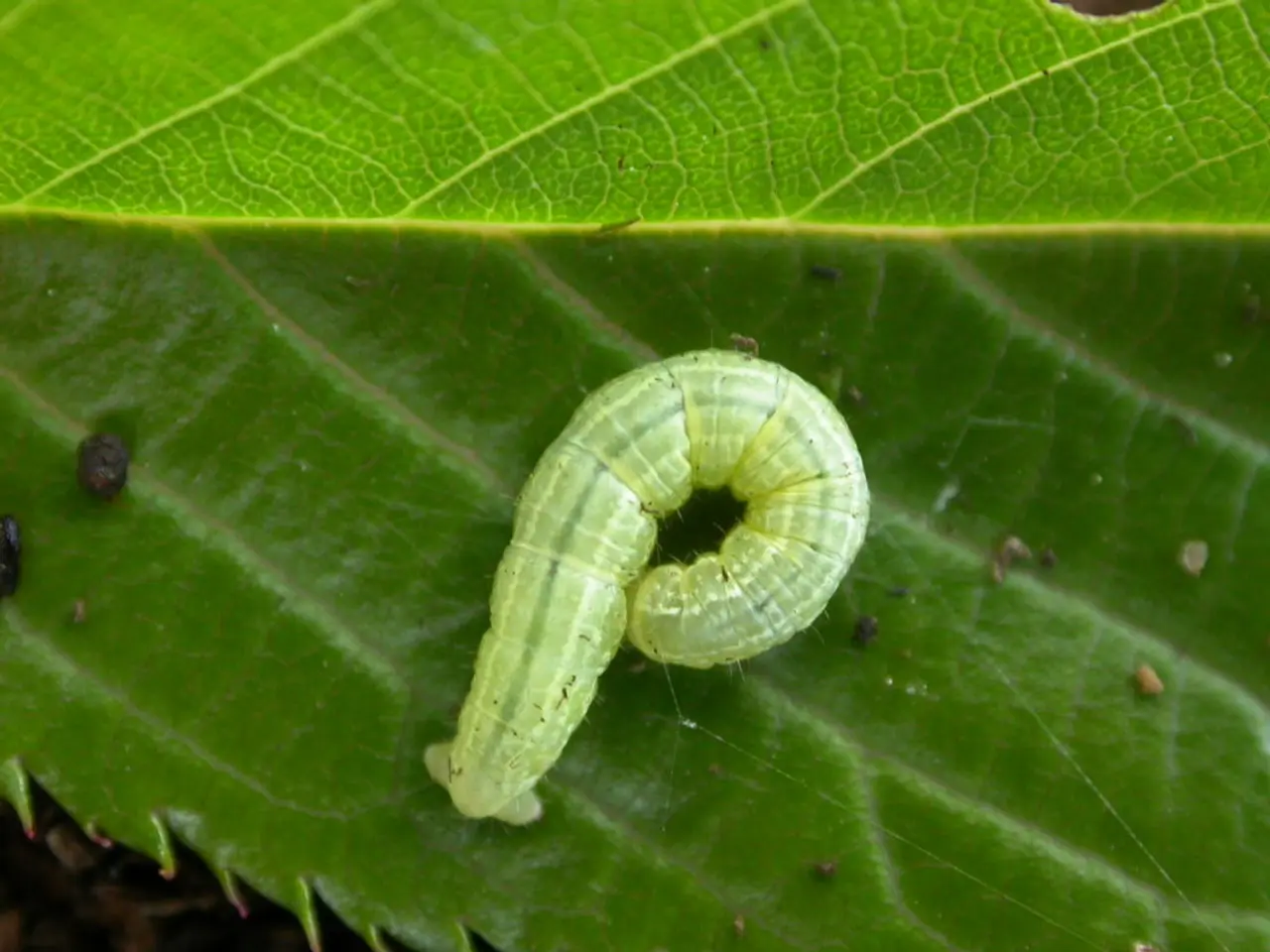Toxoplasma gondii, a parasite frequently carried by cats, might be linked to poor decision-making in humans. Insights provided.
Toxoplasma gondii, a common parasite primarily found in cats, has been discovered to have significant impacts on human behavior and health. This parasite, estimated to affect up to two billion people worldwide [1], is known for its ability to manipulate the brain chemistry of its hosts, leading to changes in personality traits, increased aggression, and impulsive decision-making [2].
The parasite's life cycle begins when it produces oocysts within a cat's digestive system, which are then released upon defecation. These oocysts can spread through soil, water, and plants, and are ingested by other animals, including cats that prey on birds and rodents [3]. Humans can also be infected through handling cat litter, consumption of untreated food, and other means [6].
Once inside the human body, Toxoplasma gondii can cause the brain to produce more dopamine, a 'feel-good' hormone [7]. An increase in dopamine can lead to poor impulse control, increased aggression, and riskier sexual behavior [4]. Chronic infection has also been associated with cognitive impairments and mental health issues such as obsessive-compulsive disorder (OCD), schizophrenia, and autism spectrum traits, suggesting a broader impact on brain function and psychiatric conditions [4].
A recent review article published in Frontiers in Psychiatry [5] focuses on the mental impacts of parasitic infections, raising questions about understanding and preventing violence and behavioral disorders due to potential parasitic infection-induced aggressive and impulsive behavior. The study suggests that the widespread parasitic infection T. gondii can pose psychological and social challenges.
The high global prevalence of Toxoplasma gondii infection raises concerns about its cumulative influence on population-level patterns of behavior, including social aggression and risk-taking tendencies [1][2]. This parasite-host interaction challenges notions of free will by demonstrating how microbial agents may subtly manipulate human emotions and actions [2].
To protect oneself from Toxoplasma gondii infection, it is recommended to practice good hygiene, such as washing hands regularly, washing fruits and vegetables, cooking meat thoroughly, and avoiding unpasteurised milk [6]. Additionally, wearing gloves while gardening and taking care when emptying cat litter trays can help reduce the risk of infection.
References:
[1] World Health Organization. (2021). Toxoplasmosis. https://www.who.int/news-room/fact-sheets/detail/toxoplasmosis
[2] Gluckman, P. D., & Hanson, M. A. (2012). Fetal programming and lifelong health and disease. Nature Reviews Genetics, 13(2), 101-112.
[3] Centers for Disease Control and Prevention. (2020). Toxoplasmosis. https://www.cdc.gov/parasites/toxoplasmosis/gen_info/faqs.html
[4] Yolken, R. H., & Ho, M. S. (2016). Toxoplasma gondii and human behavior: a review of the literature. Neuropsychiatric Disease and Treatment, 12, 1801-1814.
[5] Perrons, N., & Yolken, R. H. (2019). Parasitic infections and psychiatric disorders: a review. Frontiers in Psychiatry, 10, 524.
[6] Centers for Disease Control and Prevention. (2020). Prevent Toxoplasmosis. https://www.cdc.gov/parasites/toxoplasmosis/gen_info/prevent.html
[7] Yolken, R. H., & Ho, M. S. (2016). Toxoplasma gondii and human behavior: a review of the literature. Neuropsychiatric Disease and Treatment, 12, 1801-1814.
- The impacts of Toxoplasma gondii on human behavior extend to changes in personality traits, increased aggression, and impulsive decision-making, possibly due to alterations in brain chemistry.
- The exploration of parasitic infections, such as Toxoplasma gondii, on mental health has raised questions about the potential links between parasitic infections and behavioral disorders, including violence and aggression.
- Comprehensive health and wellness practices, including good hygiene, are vital to preventing Toxoplasma gondii infection, which can have far-reaching impacts on mental health and cognition.
- Obsessive-compulsive disorder (OCD), schizophrenia, and autism spectrum traits are among the mental health issues that have been associated with chronic Toxoplasma gondii infection.
- The high prevalence of Toxoplasma gondii, a parasite primarily found in cats, suggests that the parasite may influence population-level patterns of behavior, including social aggression and risk-taking tendencies, challenging notions of free will.




